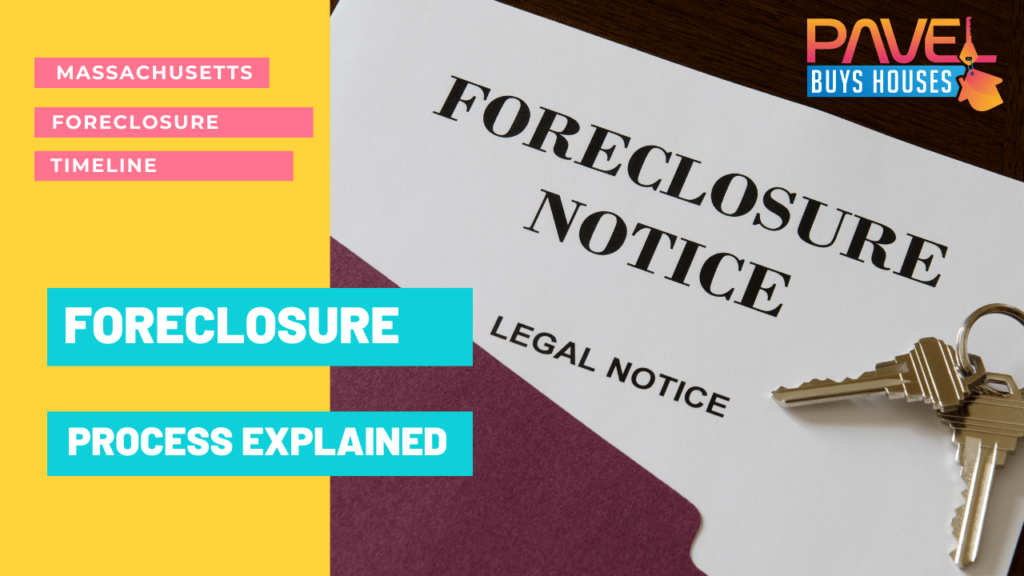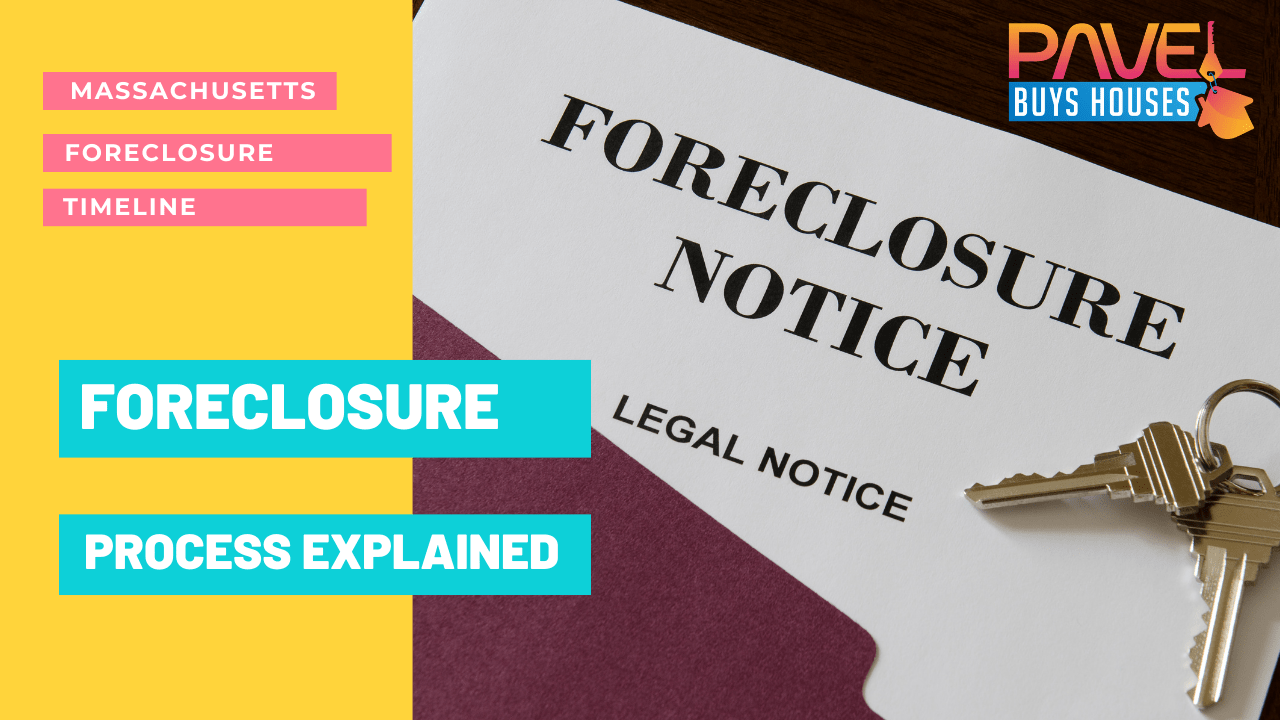
Foreclosure is a process that many people may be facing in 2021 due to the challenging times of the COVID-19 pandemic as thousands of homeowners in Massachusetts have fallen behind their mortgage payments. It can be a very challenging situation because of the uncertain times we’re living in, and we created a guide to walk you through the timeline of what a foreclosure typically looks like.
The foreclosure process in Massachusetts has many steps and there are various notices that you need to receive throughout the process before foreclosure can actually begin. The Massachusetts foreclosure timeline is detailed and complex.
The steps below outline the process at a higher level to hopefully give you a better idea of how the process actually works:
Day 1
This is the start, the first day you are late with your mortgage payment. In fact, this is the 16th day of the month, because, during the first 15 days of the month, you are enjoying a grace period, where you have the time to make the regular monthly payment. Within this period, there are no penalties for late payment, as long as it is done by the 15th of the month. After the missed payment, you are considered to be late and you might expect to receive calls and letters from the bank, reminding you to take care of your payment.
Day 30
After you fail to make a payment for more than 30 days, your loan will be considered in default. Once it is considered in default, it means that the bank can start foreclosure efforts. Although this is something that the bank can do, the situation is different in practice. The aggressiveness and the efforts of the bank to receive a payment vary from bank to bank. Sometimes, foreclosure can be brought on very quickly, but most commonly, that is not the case.
Notice of Right to Cure
At a certain moment after the default, the bank is obliged to send you a notice. This notice will state that specifics about how much you are behind with your payments. There will be a specific date upon which you need to make the payments. If you fail to do the payments by that date, the loan will be accelerated. An accelerated loan means that the full loan balance will be due, and there will be no possibility for monthly loans, nor will they be accepted. Only then, the bank may schedule a foreclosure sale.
The amount of time that you have available under the Notice of Right to Cure depends on the loan terms and whether you can apply for a loan modification. Massachusetts foreclosure laws have identified certain loan features as more problematic compared to the others. This means that if you put a small amount of money down on the mortgage, or if the loan had a low introductory interest rate, the bank must send you specific paperwork which will state that you have the right to request a loan modification. If you submit this loan modification request timely, then you will have additional 150 days to catch up on the late payments. If this is not the case, then, you will have only 90 days, which is the amount of time that is given to all other loans.
Service Civil Relief Act
After the loan is accelerated, it is in the bank’s best interest to file a request for a judgment in the Land Court under the Service Civil Relief Act. This is a way of protection for those who are in the military and to ensure that no active-duty military members are experiencing foreclosure. If you are an active military member, you are entitled to file a response in a time frame of 20 days. If you are not an active member of the military, then you do not need anything. This step is common in Massachusetts before the foreclosure appears, although it is not required under the law.
Notice of Sale Date
When the loan is accelerated and there is a judgment issued by the Land Court, the next step includes scheduling a sale date of the property. This is done by the bank, and there must be published a notice of a sale in the newspaper for three consecutive weeks. Also, the bank must send you a notice of the sale date at least 14 days before.
Foreclosure Auction

The step of the foreclosure auction is the day when, at the specific time, the auctioneer and the interested and prospective purchasers will arrive at the property. These types of auctions usually take place in front of the property. The purchasers are not allowed to enter or to see the home in most cases. The property will be sold to the buyer who offers the highest price during bidding.
Eviction
After the entire process of auction and foreclosure sale is done and finished, you do not have to immediately leave your home and the premises. The new owner must bring an action in the housing court so that they can lawfully evict you. Until then, you can stay at the property. Please be sure to consult with your attorney for a more thorough discussion related to evictions.
Conclusion
If you are facing foreclosure and are looking for additional resources, be sure to check out our comprehensive guide to stopping foreclosure or get in touch with us via e-mail and we’ll do our best to help you! If you need to sell your home quickly to stop the auction, we will provide you with a solution best suited for your situation and help as much as we can.

